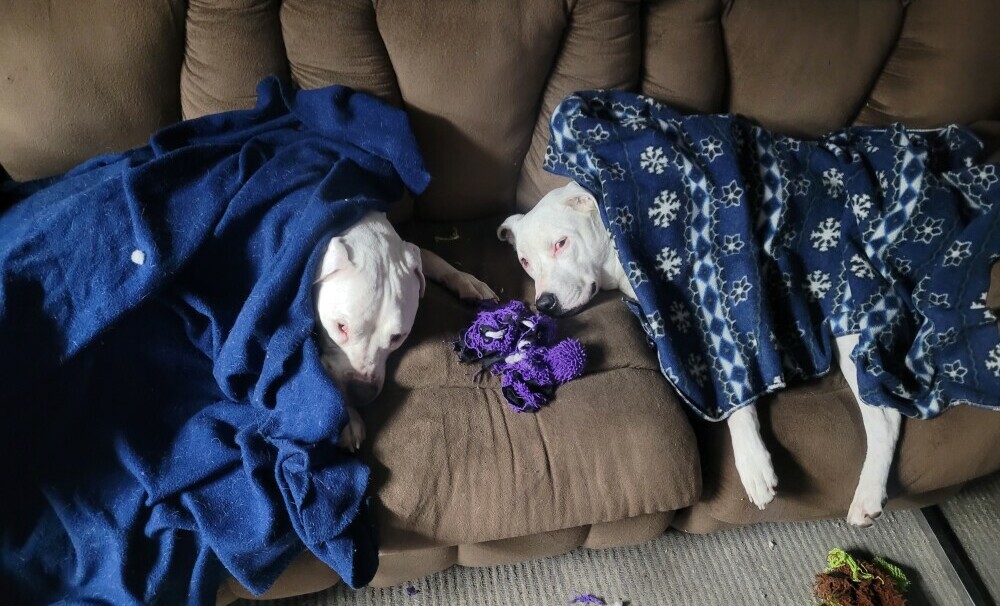Common Behavior Problems In Rescue Dogs And How To Solve Them
 I’ve seen firsthand that rescue dogs often carry the invisible weight of their past. Unlike puppies raised in a stable environment, rescue dogs may have encountered neglect, abuse, or abandonment. These experiences, sadly, can leave a mark on their behavior.
I’ve seen firsthand that rescue dogs often carry the invisible weight of their past. Unlike puppies raised in a stable environment, rescue dogs may have encountered neglect, abuse, or abandonment. These experiences, sadly, can leave a mark on their behavior.
Establishing trust is not just helpful; it’s the very bedrock of tackling any behavioral issue a rescue dog might have. It’s important to understand that, for these animals, this new chapter with you might be a stark contrast to what they’ve known. Earning their trust could be slow-going, but it’s always worth the effort.
Patience and consistency form the cornerstone of any attempt to rehabilitate a rescue dog. It’s crucial to set realistic expectations and prepare yourself for the long haul. Keep in mind that change is possible, although it might not happen overnight. Celebrate small victories along the way, as they can lead to transformative outcomes.
Common Behavior Problems and Their Root Causes
When I welcome a rescue dog into my home, I understand I’m also inviting their past experiences with them. Each dog comes with a unique history that often manifests as behavior challenges. Identifying the underlying causes is my first step toward helping them adjust and thrive.
Anxiety is a frequent visitor in rescue dogs. It can surface as constant pacing, excessive barking, or destructive behavior. Sometimes as destructive as digging a giant hole through the wall of your house like my youngest rescue did when we first got him!! These symptoms are often rooted in past traumas or instability, and addressing them takes time, care, and sometimes professional guidance.
Aggression, another challenge, may initially be concerning. Many rescue dogs show aggression out of fear, not malice. Whether they’re growling at strangers or snapping at other pets, these behaviors usually stem from previous encounters where they felt threatened.
Then there’s resource guarding, where a dog aggressively protects their food or toys. It’s a direct link to their history—perhaps they’ve had to compete for these resources before, and old habits die hard. Recognizing this helps me retrain their responses to sharing and security.
House training may be a hit-or-miss, and for good reason. Consistency might’ve been absent in their lives up to this point, and establishing a new, reliable routine is crucial. Sometimes, it’s not just about learning where to go but trusting that they can go there safely every time.
I know that by uncovering these root causes, I can tailor my approach to each dog’s needs. My next step is to craft a behavior modification plan that’s both effective and compassionate, setting the stage for my rescue dog to find peace and joy in their new home.
Effective Strategies for Behavior Modification in Rescue Dogs
If you have a rescue dog displaying behavioral issues, it’s crucial to approach behavior modification with a multi-faceted strategy that emphasizes patience, understanding, and consistency. Here, you’ll learn practical methods to help your rescue dog overcome these challenges.
Positive reinforcement training is a powerful tool in your arsenal. It’s about rewarding good behavior with treats, praise, or playtime, which encourages your dog to repeat those actions. Establishing a reward system creates a strong association between obedience and positive outcomes, fostering both trust and better behavior.
Creating a secure and predictable environment is also vital. Rescue dogs often come from unstable backgrounds. By providing a stable home with clear expectations and routines, you’re offering a sanctuary that can significantly reduce stress and anxiety, making behavior training more effective.
When you encounter aggression, it’s essential to address it calmly and safely. While professional training can be incredibly beneficial in these cases, basic socialization techniques can also help. Slowly introducing your dog to new people, dogs, and environments can reduce fear and aggression over time. Remember, safety first – use a muzzle if necessary during the introduction phase to prevent accidents.
Don’t underestimate the power of exercise and mental stimulation. Regular physical activity burns off excess energy that might otherwise fuel anxiety or aggression. Mental challenges, like puzzle toys or training sessions, keep their minds sharp and focused, diverting attention from destructive or anxious behaviors.
By implementing these strategies, you lay the groundwork for a transformed relationship with your rescue dog. Next, you’ll see how reinforcing these methods ensures your dog transitions into a happy, well-adjusted family member.
Supporting Your Rescue Dog’s Transition to a Happy Home Life
 Your commitment to a rescue dog doesn’t end once you’ve tackled the initial behavior problems. A happy home life is an ongoing project, one that’s rich in rewards for both you and your new friend. Remember, it’s about creating a sanctuary where trust, love, and security are the norm.
Your commitment to a rescue dog doesn’t end once you’ve tackled the initial behavior problems. A happy home life is an ongoing project, one that’s rich in rewards for both you and your new friend. Remember, it’s about creating a sanctuary where trust, love, and security are the norm.
Consistency is your greatest ally when it comes to creating this sanctuary. Establishing and sticking to a routine reassures your dog that there are no surprises waiting to trigger past anxieties. Regular feeding times, walks, and quiet times will help solidify this feeling of safety.
But routine doesn’t just mean predictability – it invites opportunities for bonding and healing. Engaging in activities together like playing fetch or learning new tricks isn’t just fun. It’s a powerful way to build an emotional connection and promote emotional recovery.
Despite your best efforts, there might come a time when you need to seek professional help. A significant change in behavior or an inability to overcome a certain issue isn’t a sign of failure. Emotional and behavioral complexities sometimes require the experience of a vet or a behavior specialist. They can offer invaluable guidance and treatments that are beyond the scope of even the most dedicated dog owner.
Finally, take inspiration from the success stories of others. Knowing what others have achieved with their rescue dogs can provide motivation and practical insights. Every small victory your rescue dog experiences is a step towards a truly happy and harmonious home life.
